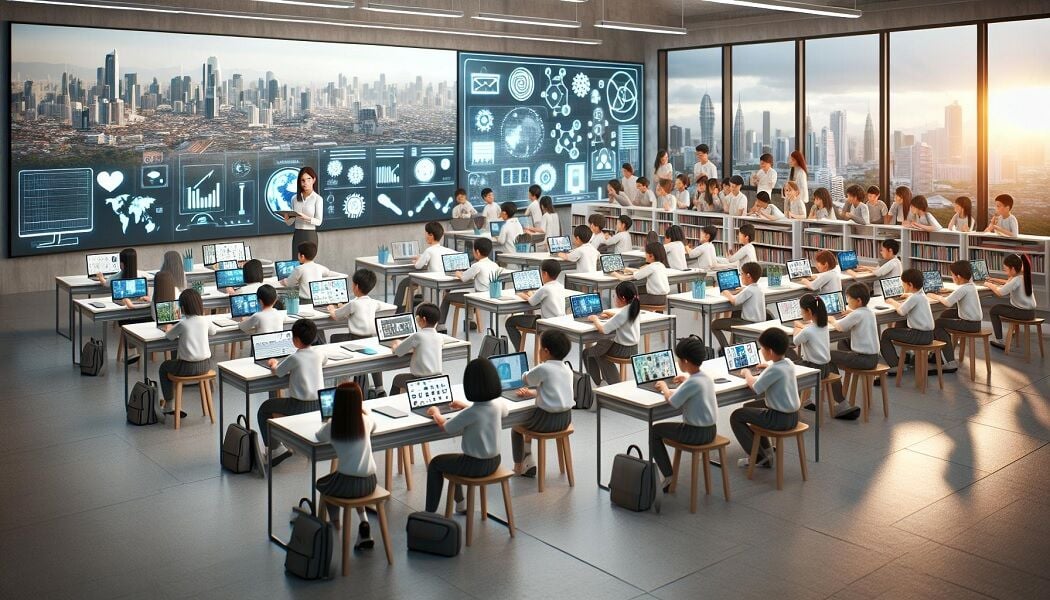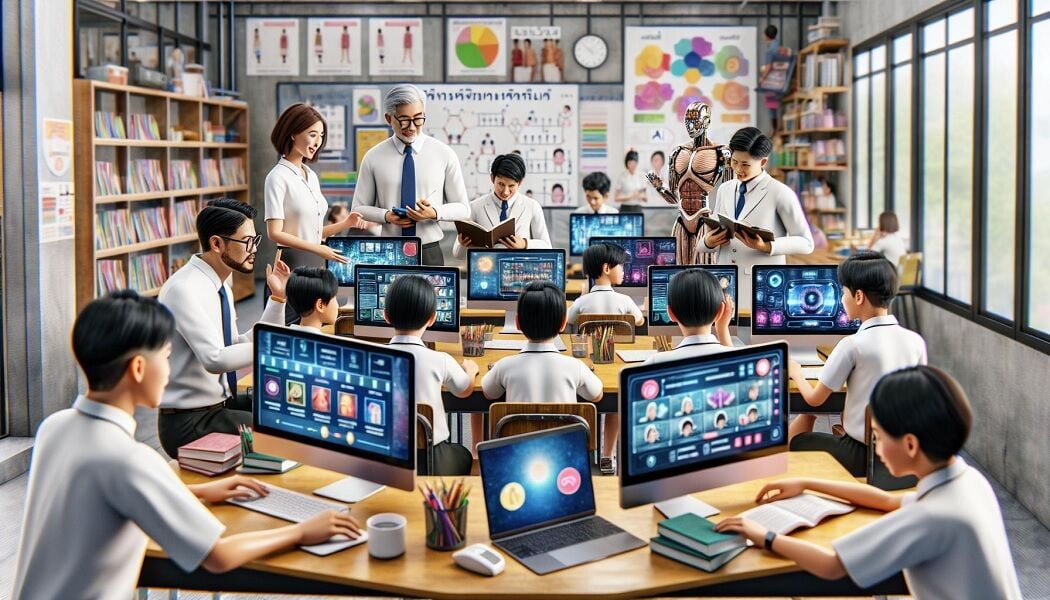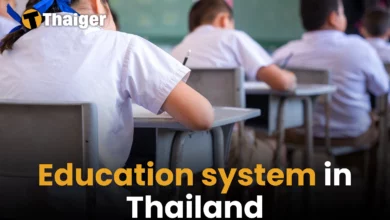Revamp ahead: Solving Thailand’s education puzzle

Navigating the complexities of the Thai education system presents a unique set of challenges, from the recent debates around the duration of free education to the criticisms of the evaluation processes. Moreover, the evaluation system itself has come under fire for not accurately reflecting school quality, adding to the burden of educators with its time-consuming and inconvenient processes. These issues highlight the urgent need for reform within the Thai education system.
Under the leadership of Prayut Chanocha since 2014, there have been attempts to instil nationalism and martial thinking through education, alongside promises of more holistic curriculums and increased funding for provincial schools. Yet, the full realization of these reforms remains to be seen. As we delve deeper, we’ll explore how these challenges have shaped the current state of Thai education and what potential solutions could lead to meaningful improvements.
Challenges in the Thai education system

Lack of funding
Your understanding of the Thai education system isn’t complete without addressing the critical issue of funding. Despite a significant increase in the education budget over the past 15 years, the allocation appears insufficient when considering the demands of modern education. Rural schools bear the brunt of this shortfall, often lacking basic infrastructure and instructional materials. This disparity severely impacts the quality of education offered to students in less urbanized areas. Technology in Thai education could bridge this gap, but without adequate funding, implementing EdTech remains a challenge.
Outdated curriculum
The curriculum within Thailand’s education system is another considerable hurdle. It’s rooted in tradition, focusing on rote learning and memorization, rather than fostering critical thinking and creativity. The global economy demands innovative minds, and the current approach disadvantages Thai students. Digital Transformation in Thailand’s education sector is on the horizon, aiming to incorporate technology and modern pedagogies. However, transforming a system steeped in history requires new textbooks and a complete shift in teaching methodologies.
Teacher shortage
A critical challenge facing Thailand’s education system is the shortage of qualified teachers, exacerbated in remote rural areas. Often, a single educator is responsible for multiple subjects across different grades. This scenario dilutes the quality of education, as teachers are spread too thin. The promise of EdTech in Thailand offers a glimmer of hope, potentially supplementing the teacher’s role with digital tools and resources. Yet, for technology to be effectively integrated, teachers must first be trained. This circle of teacher training, recruitment, and retention is a complex puzzle that Thailand must solve to ensure the lack of instructional personnel compromises no student’s education.
Potential solutions for the Thai education system

It’s no secret that boosting government funding is crucial for the Thai education system. More funds mean schools, especially those in rural areas, can upgrade their infrastructure. This includes essential facilities such as libraries and laboratories. Additionally, technology in Thai education can receive a significant boost. Investing in digital resources and EdTech in Thailand paves the way for a more inclusive and interactive learning environment. This step could bridge vast educational gaps, making quality education accessible to all.
Implement modern curriculum
A key to unlocking the potential of Thailand’s future generations is overhauling the outdated curriculum. Traditional rote learning methods are no longer sufficient in fostering critical thinking and creativity. A modern curriculum, designed with the global economy in mind, should embrace problem-solving and project-based learning. Digital transformation in Thailand’s education system plays a pivotal role here. Incorporating technology and EdTech tools can make lessons more engaging and relevant to today’s digital world. This update is essential for students to compete on an international level.
Recruit and retain quality teachers
The foundation of a robust education system lies in its teachers. Thailand faces the challenge of attracting and keeping qualified educators, particularly in underprivileged and remote areas. Solutions include offering competitive salaries, opportunities for professional development, and creating supportive teaching communities. Furthermore, integrating technology and EdTech resources can ease the burden on teachers by providing them with modern tools and teaching methods. Ultimately, empowering teachers with the right resources and support is vital for elevating the quality of education across the country.
The integration of AI into Thailand’s educational system marks a transformative era. This innovation is not just a trend but a fundamental shift towards interactive, personalized learning experiences. For students, it means education tailored to their pace and style. For teachers, it’s a tool that enhances their teaching methods. As we embrace this change, the potential for improved learning outcomes is immense. This is a pivotal moment for Thai education, signalling a move towards a future where every student has the chance to succeed. Truly, AI is the game changer we’ve been waiting for.

































